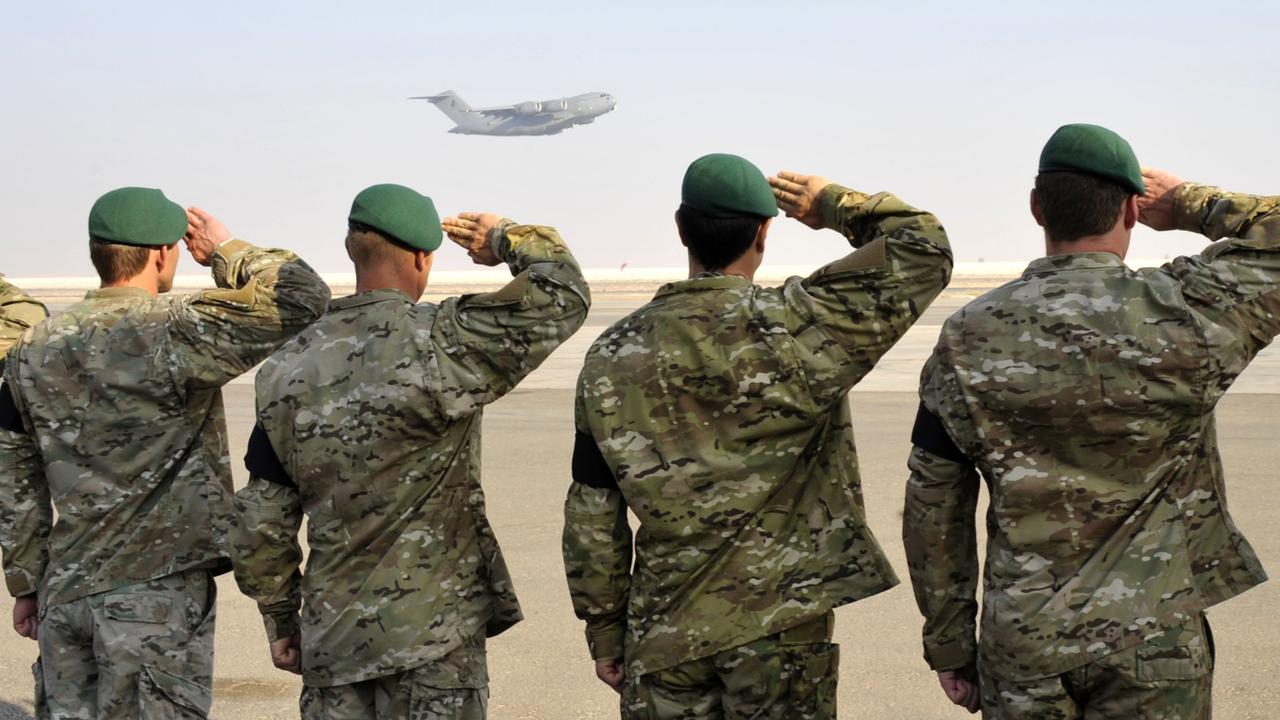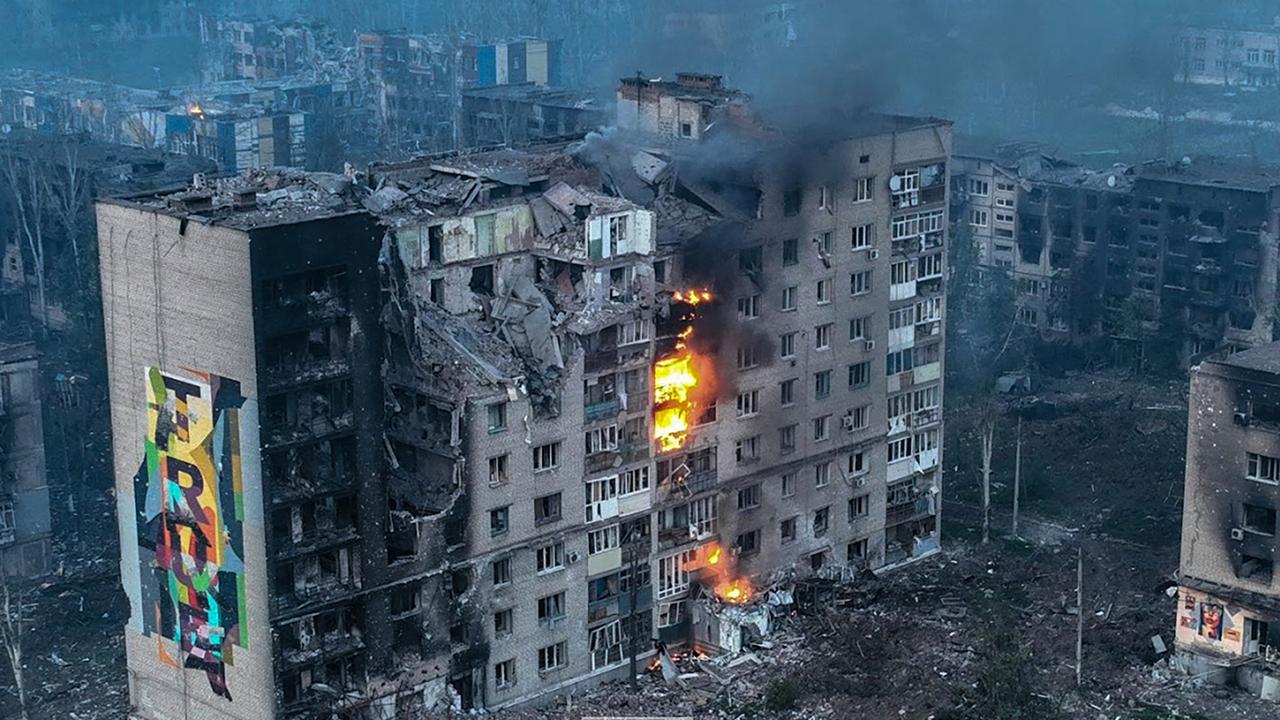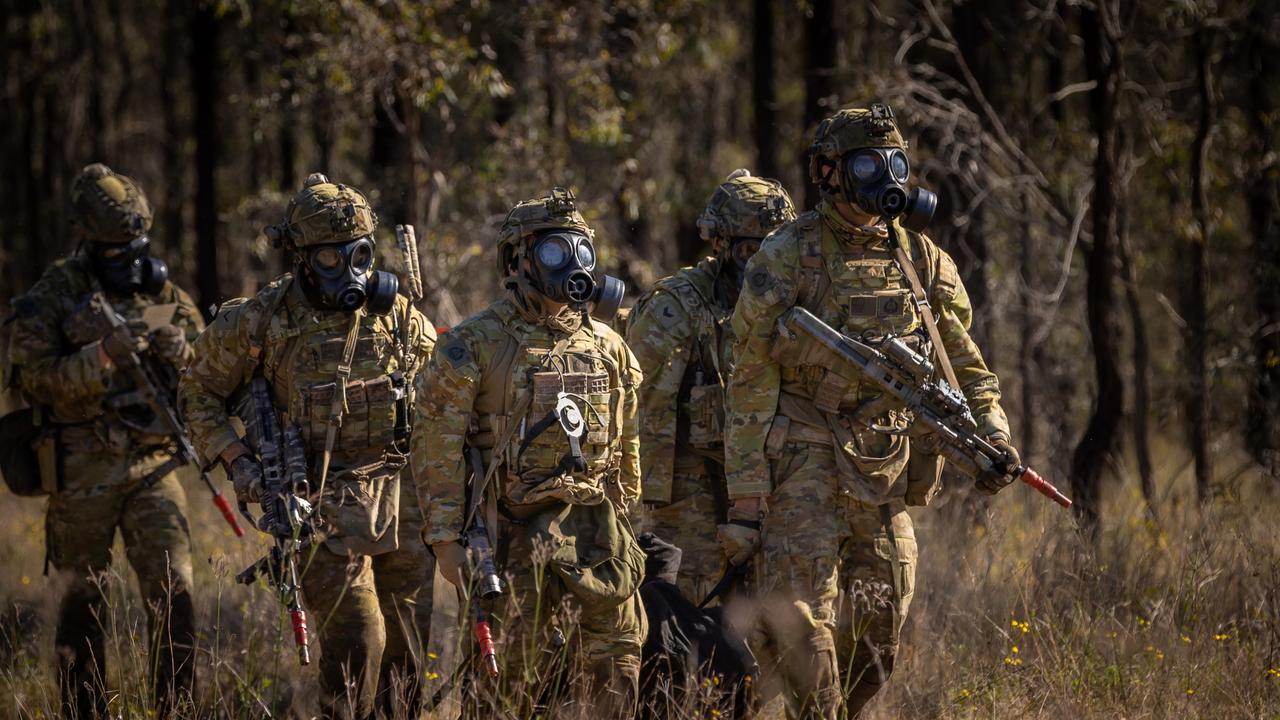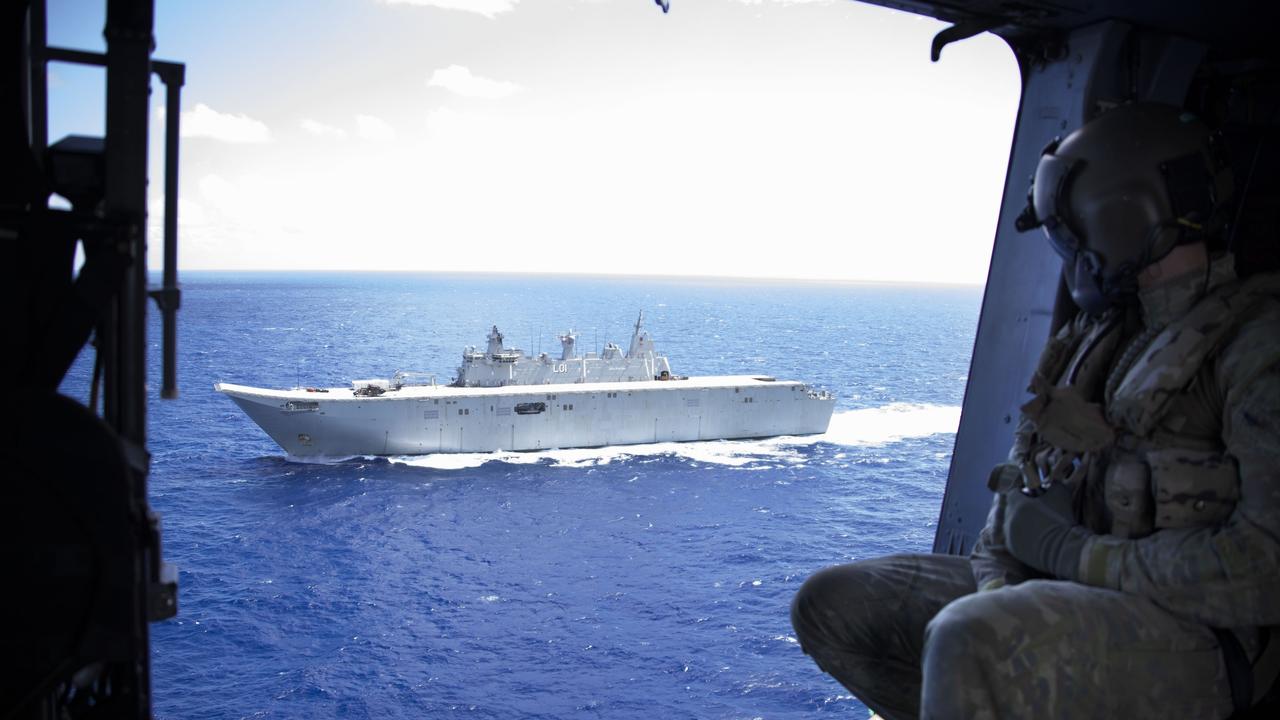Australia must consider bringing back conscription as ‘all-out war’ with Russia looms, expert says
Australia must consider reintroducing conscription to boost its troop numbers in the face of a looming “all-out war” with Russia, an expert says.
Innovation
Don't miss out on the headlines from Innovation. Followed categories will be added to My News.
Australia must seriously consider reintroducing conscription to boost its troop numbers in the face of a looming “all-out war” with Russia, a defence analyst says.
Rapidly rising global tensions in eastern Europe and the Middle East threaten to “drag Australia into an orbit of an open confrontation”, Dr Alexey Muraviev, Associate Professor of National Security and Strategic Studies at Curtin University, said.
He added it may be “time for Australia to consider another uncomfortable subject — the return of national service”.
“Back in 1972, Labor under Gough Whitlam abolished the national service in peacetime, even though it could still be reactivated in times of war,” Dr Muraviev wrote in an op-ed for Sky News Australia on Sunday.
“Fifty-two years later, we should be asking ourselves and Labor under Anthony Albanese if we should consider reintroducing a form of national service to increase a pool of trained reserves while we still have time. Or should we wait to be dragged into a major conflict, and deal with the consequences?”
Successive Australian governments have recognised the inadequate size of the Australian Defence Force, with former Prime Minister Scott Morrison pledging a 30 per cent increase to a target of 80,000 personnel by 2040 — a policy supported by Labor.

Last year, top-secret war-gaming exercises conducted for the Albanese government’s defence review concluded Australia would be “f***ed” if China established a military base in a nearby Pacific nation such as the Solomon Islands.
“The question of the ADF’s size came to the fore during Australia’s contingencies in Afghanistan and Iraq, both of which required considerable commitments supported by regular rotations of personnel,” Dr Muraviev wrote.
“As the risk of Australia being drawn into a major war increase, we are facing a short window of opportunity to address some of the shortfalls in our defence capability.”
Former Prime Minister Tony Abbott last year floated the idea mandatory military service for school leavers.
It comes days after similar comments from European leaders, including former UK Prime Minister Boris Johnson, who used his Daily Mail column on Saturday to pledge to fight in the British army if war ever breaks out with Russia.
Mr Johnson was responding to comments last week by General Patrick Sanders, the UK’s highest ranking army officer, who warned that British citizens should be prepared to fight in a potential land war.

“No sooner had I posed myself the question — would I sign up to fight for King and country? — than I had the answer. Of course I jolly well would,” Mr Johnson wrote.
Mr Johnson said that while he hoped and believed his “services will not be called upon” in a “direct military confrontation, with Russia or any other potential adversary”, it would be “deluded” to think that “war is impossible”.
“History teaches us that the best way to preserve the peace is to be vigilant,” he wrote. “The best way to deter the aggression of men such as Vladimir Putin is to be strong. The best way to prevent a war is to prepare for it. Si vis pacem para bellum.”
And two top defence officials in Sweden — which is set to become part of NATO — have also made headlines by urging Swedes to prepare for war.
Civil Defence Minister Carl-Oskar Bohlin warned that the country faced the risk of war after almost 210 years of peace. “Are you a private individual?” he asked. “Have you considered whether you have time to join a voluntary defence organisation? If not — get moving.”
Sweden’s military commander-in-chief, General Micael Byden, later backed his comments, telling the national broadcaster that “we need to realise how serious the situation really is, and that everyone, individually, need to prepare themselves mentally”.

In his speech last week, the General Sanders, the UK’s chief of the general staff, said any conflict would need to be a “whole-of-nation undertaking” and that citizens should be trained and equipped to be in a state of readiness.
The general’s remarks come after the UK Defence Ministry said last year that it would cut overall numbers in the UK’s professional army from 82,000 to 73,000 by 2025.
“Taking preparatory steps to enable placing our societies on a war footing when needed are now not merely desirable but essential,” General Sanders said in a speech at an armoured vehicles conference in southwest London.
“Within the next three years, it must be credible to talk of a British Army of 120,000, folding in our reserve and strategic reserve.”
General Sanders, who steps down later this year, said the UK could not rely on its navy and air power, arguing that “we must be able to credibly fight and win wars on land”.
UK allies were already doing so, he said.
“Our friends in eastern and northern Europe, who feel the proximity of the Russian threat more acutely, are already acting prudently, laying the foundations for national mobilisation,” he added. “Ukraine brutally illustrates that regular armies start wars — citizen armies win them.”

Earlier this month the chair of NATO’s military committee, Admiral Rob Bauer, said civilians in member states should be prepared for a potential future war with Russia.
A large number of civilians would have to be called up if conflict accelerates in Europe, he added.
UK Defence Secretary Grant Shapps said that the UK wants to increase defence spending from 2.1 per cent of GDP to 2.5 per cent in the future.
In a speech this month, the Minister said that the world was “moving from a post-war to pre-war world”.
The UK, he said, must ensure its “entire defence ecosystem is ready” to defend its homeland.
Richard Dannatt, who was chief of the general staff from 2006 to 2009, compared the current situation to the 1930s when the “woeful” state of the UK’s armed forces failed to deter Nazi aggression.
“There is a serious danger of history repeating itself,” he wrote in The Times newspaper, calling for UK defence spending to reach 3 per cent of GDP.
“If our armed forces are not strong enough to deter future aggression from Moscow or Beijing, it will not be a small war to contend with but a major one.”
— with AFP
Originally published as Australia must consider bringing back conscription as ‘all-out war’ with Russia looms, expert says









